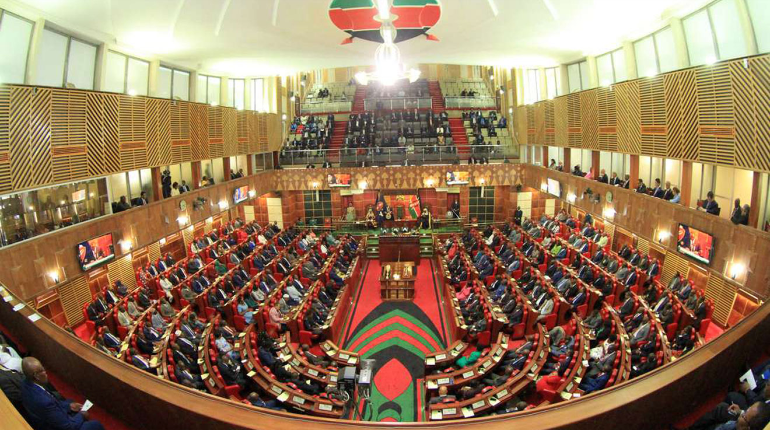Members of the National Assembly have begun debate on a Bill that seeks to restructure the Independent Electoral and Boundaries Commission (IEBC) including the roles and power of the chairman, qualifications of commissioners and the term limit of the chief executive officer.
The Independent Electoral and Boundaries Commission (Amendment) Bill, 2024, read before the House for the first time this week, wants various amendments done on the composition of IEBC, including on the selection panel responsible for picking commissioners to the electoral agency.
Co-sponsored by the leader of the majority party in the National Assembly Kimani Ichung’wa and his minority counterpart Opiyo Wandayi, the Bill will give effect to some of the recommendations and views of the public that were submitted during the national dialogue discourse on the issues of Electoral Justice and related matters.
It also seeks to address concerns raised during the bi-partisan talks on issues such as outstanding Constitutional matters, fidelity to Political Parties/Coalitions and the law on multiparty democracy among others.
The proposed law also seeks to amend the Independent Electoral and Boundaries Commission Act, No. 9 of 2011 to clean up the Act by deleting obsolete provisions.
Clause 2 of the Bill seeks to amend section 2 of the existing Act by aligning the definition of the chairperson of the Commission to the Judgment of the High Court and by deleting obsolete provisions in the section.
If it is passed by the House and assented to, commissioners of the IEBC will be expected to have experience in accounting or information and communication technology as additional professional qualifications for appointment as a member of the Independent Electoral and Boundaries Commission.
Clause 5 of the Bill seeks to amend Section 10 of the principal Act to provide that the term of the secretary to the Commission shall be three years, renewable once.
Regarding operations of Kenya’s electoral body, Clause 6 of the Bill empowers the Commission to review its operations and make the necessary changes required to make its operations more efficient, effective, transparent and accountable after every general election.
The Bill further seeks to amend the First Schedule to increase the number of members of the selection panel from seven to nine in order to accommodate a wide spectrum of stakeholders and interest groups.
Regarding operations of Kenya’s electoral body, Clause 6 of the Bill empowers the Commission to review its operations and make the necessary changes required to make its operations more efficient, effective, transparent and accountable after every general election.
The Committee on Justice and Legal Affairs of the National Assembly and that of the Senate are expected to hold joint sittings to consider this Bill alongside other proposals to amend the Constitution.



